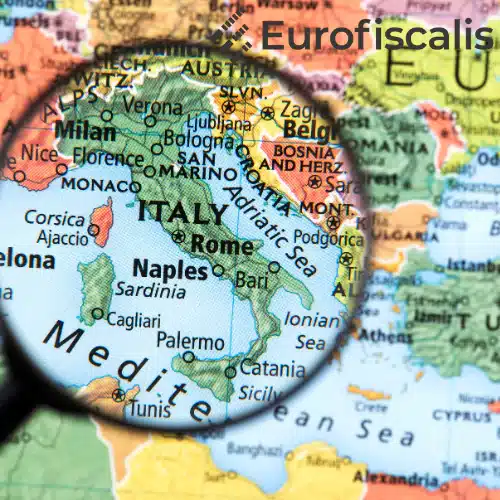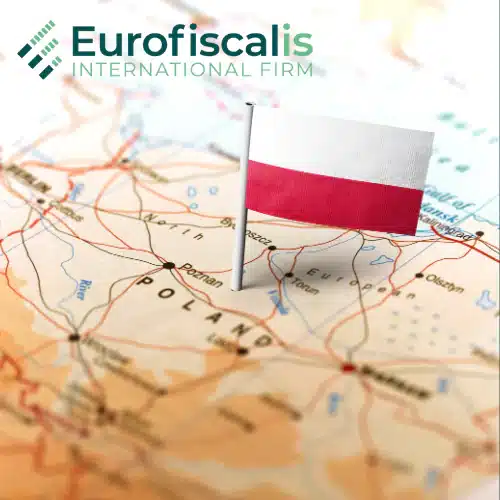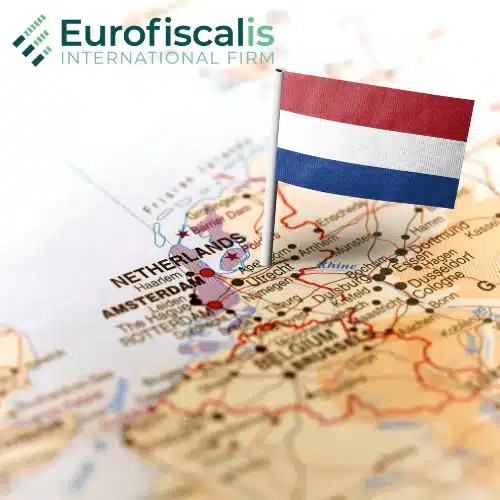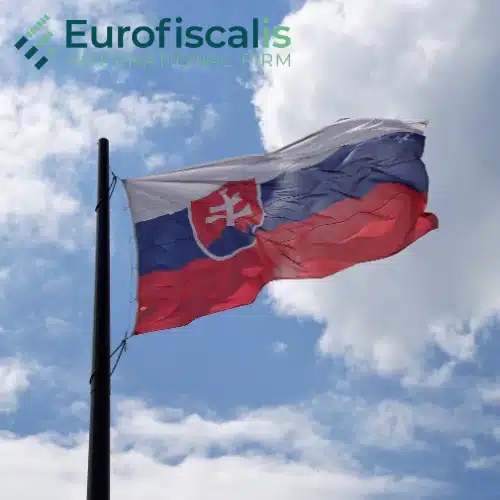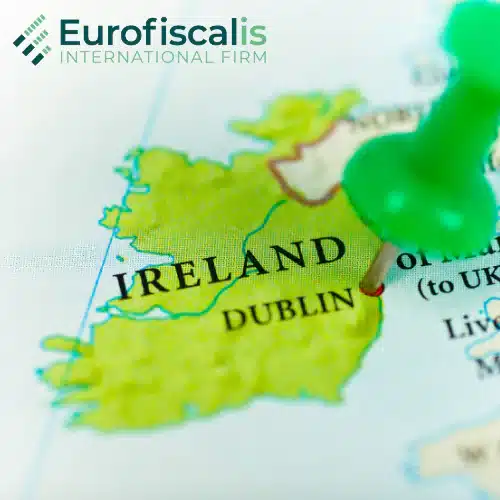
Norway exports
Navigating the international market, especially when dealing with customs duties and tax regulations, can be a complex and multifaceted endeavor. For companies that are keenly looking into exporting their products to Norway, gaining a deep understanding of the Norwegian import process is of utmost importance. This involves a comprehensive grasp of the import Tax Regulations, specifically understanding if and how Value Added Tax (VAT) and customs fees are determined and applied.
- Published :
- Estimated reading time : 2 min
Table of contents
Introduction to Norway exports
This intricate knowledge serves multiple purposes. Firstly, it aids companies in crafting an effective and realistic budgeting strategy. Secondly, and perhaps more importantly, it ensures that companies remain compliant with the legal requirements of Norway. Things get stuck at the border.” In essence, this phrase emphasizes the potential challenges and delays that can arise at the border if proper procedures and regulations aren’t followed. It’s a reminder that understanding and adhering to these regulations is not just about avoiding financial penalties, but also about ensuring timely delivery to customers. After all, in the competitive world of international trade, fast and on-time delivery can provide a significant advantage over competitors.
Moreover, strict adherence to these import tax regulations is not just a recommendation; it’s a necessity. It’s the foundation upon which successful exports to Norway are built. Any oversight or non-compliance can lead to complications, delays, or even rejections at the Norwegian border, which can be detrimental to a business’s reputation and bottom line. Now, if you have experience selling your goods in other European Union (EU) countries, you might have a foundational understanding of how customs and tax regulations work within the EU framework. Within the EU, there’s a standardized system that facilitates the free movement of goods, services, capital, and people. This means that once a product is imported into one EU country, it can typically be sold and transported to other EU member states without facing additional customs checks or charges.
However, and this is crucial, Norway is not a member of the EU which is important to consider when doing Norwegian exports. While it has certain agreements in place with the EU, its customs and tax regulations differ. So, even if you’re well-versed in the EU’s customs procedures, exporting to Norway presents its own unique set of challenges and requirements. It’s essential to recognize these differences and prepare accordingly to ensure a smooth and successful export process to Norway.
Norway exports from the EU
Norway, while part of the EEA, is not a member of the EU Customs Union, meaning goods transferred from any EU country to Norway are not considered an intra-Community supply. Goods transferred from the EU into Norway are considered as an export from the EU, and then an import into Norway. This really implies that goods have to be declared at the border. Goods that are imported into Norway are subject to customs duties, import VAT, and sometimes other taxes. The amount you’ll pay in customs duties and import VAT depends on several factors, including the nature and value of the goods being exported to Norway.
Understanding the Role of Importers in Norway exports
The importer is responsible for clearing the goods through customs and paying the import customs fee and VAT. It is very important that you clarify if you are the importer into Norway or if it’s your Norwegian customers.
When engaging in import activities in Norway, being well-acquainted with the required documentation is paramount. The process necessitates several forms, including customs declarations and import licenses, each tailored to specific types of goods. Notably, Norway has distinct regulations for certain items. For instance, the import of alcohol and tobacco is governed by specific rules, reflecting the country’s health and safety priorities. Similarly, the importation of unique plants or animals has its dedicated set of guidelines. Ensuring that all paperwork is accurately completed and submitted is crucial to a smooth import process. It’s advisable to familiarize oneself with these regulations to prevent any unforeseen challenges or delays in customs clearance.
If your Norwegian customers are Norwegian consumers and they are the importers (and not you), then they will have to pay the import VAT upon importing. Companies like Posten will handle all their paperwork, but will charge an administration fee. This will increase the costs for your consumers, and you should decide if this fits your market strategy.
All other importers who are VAT registered will pay the import VAT through their VAT declarations. Hence, a VAT registration is highly recommended before you start your import operations into Norway. Clarifying your market strategy, determining if you are selling on the Norwegian market, and consulting with your Norwegian customer is essential to ensure the import process is done correctly.
In the case of B2B, your incoterms might decide who the importer is; either you or your Norwegian customer. Other indicators that you must be the importer are if you are delivering installed goods in Norway.
If you are the importer of goods into Norway, then this article is relevant to you.
Is There Import Tax in Norway?
In the world of international trade, understanding tax regulations in the target market is fundamental. For businesses looking into Norway exports, one critical question often arises: is there an import tax in Norway?
Does Norway impose an Import Tax?
The answer is yes, Norway does impose import taxes on goods imported into the country. As Norway is part of the European Economic Area (EEA) but not a member of the EU Customs Union, goods coming into Norway from other countries are generally subject to import taxes. The import tax typically consists of value-added tax (VAT), and quite often customs duties. There are essentially three types of taxes on the import of goods from abroad – customs duty, VAT, and special taxes. What you must pay or report to the tax authorities depends on the type of goods and the origin of the goods. Anyone importing into Norway has to declare the goods, and import taxes are calculated at the moment of importation.
Understanding Import VAT Rates in Norway
Norway imposes a value-added tax on most goods imported into the country. The VAT is calculated based on the customs value of the goods, which typically includes the cost of the goods, transport costs, insurance, and any customs duties payable.
The standard rate of import VAT in Norway is 25%. This applies to most goods imported into the country. However, certain goods qualify for reduced VAT rates. For instance, food items are taxed at a reduced VAT rate of 15%.
VAT exemptions
There are also certain goods that are exempt from VAT. This includes fore example books. Businesses should check the VAT regulations carefully to see if their goods might qualify for a reduced rate or exemption.
Calculating Import VAT when it comes to Norway exports:
Import VAT is calculated based on the customs value of the goods, which is generally the cost of the goods, insurance, freight (CIF) up to the Norwegian border, and customs duty (if any). The exact rate of vat depends on the type of goods, as outlined in Norway’s VAT regulation.
The standard VAT rate in Norway is 25%, but lower rates apply to certain goods like foodstuffs (15%) and transport services (12%). Most goods will fall in the 25% category.
Paying VAT on imports
Upon importation, a customs declaration must be submitted to Norwegian Customs, detailing the goods being imported. The VAT payable will then be calculated and must be paid before the goods can be released from customs (unless you are VAT registered in Norway).
Understanding the import VAT rates in Norway can help businesses accurately forecast the costs associated with their Norway exports. By including VAT in their financial planning, businesses can ensure compliance with Norwegian tax laws and make more informed decisions about their international trade operations.
A Deeper Dive into VAT on Norway Exports:
Value-added tax (VAT) is a significant consideration for businesses planning Norway exports. This tax is applied to most goods imported into Norway and can significantly impact the overall cost of exporting goods to the country.
Custom duties
Customs duties for Norway exports are calculated based on the product’s customs value, which is usually the cost of the goods plus transport costs, insurance, and any other costs up to the Norwegian border. The specific rate of duty varies depending on the type of goods, with the rates listed in Norway’s customs tariff.
How to Pay the Import Customs Fee
Once you’ve determined the relevant customs duties and taxes for your Norway exports, you must declare them to Norwegian Customs. After the declaration is processed, Norwegian Customs will notify you of the amount to be paid. Payment can be done through several methods, including online banking or direct debit.
Navigating customs duties can be complex, but with a thorough understanding of the import customs fee in Norway, businesses can efficiently plan and execute their Norwegian exports. This ensures compliance with local regulations, fostering smooth operations and a productive international business relationship with Norway.
Special taxes
The third type of import taxes to consider when doing Norway exports, on the rare occasion, pertains to special taxes. These are not your everyday taxes but are levied for specific purposes. Certain goods, such as alcohol, tobacco, oil-based products, and vehicles, fall under this category. When these items are imported into a country, they attract these special taxes, reflecting the nation’s health, safety, and environmental priorities. It’s essential for businesses and individuals to be aware of these specific import taxes to ensure compliance and avoid any regulatory surprises.
Recovering the import VAT on Norway exports
Now you have, as an importer into Norway, paid the import VAT, how can you recover that? Businesses may also be able to recover the VAT paid on certain business expenses in Norway. This could include expenses such as transport, accommodation, maintenance, and import VAT. It is important to assess if you have VAT-liable sales to ensure that you are VAT registered in Norway. To recover this VAT, non-Norwegian based businesses must either be VAT registered in Norway and have VAT-liable sales or submit a VAT refund application to the Norwegian tax authorities, providing details of the expenses and proof of the VAT paid.
VOEC Scheme might be good for Norway exports
There are 2 schemes that can simplify the Norway Exports. That is the VOEC scheme and temporary import procedure. The temporary import procedure will be discussed further down.
Understanding the VOEC Scheme for Norway Exports
The VAT On E-Commerce (VOEC) scheme is a significant aspect of VAT on Norway exports that businesses should be aware of. This scheme facilitates the import and registration obligations. However, the scheme is only open for foreign businesses selling low-value goods to consumers in Norway.
Under the VOEC scheme, foreign businesses can register with the Norwegian Tax Administration and charge VAT at the point of sale. This means that the goods can be sent directly to the customer in Norway without the need for customs declaration and payment of VAT at the point of import. The business then reports and pays the VAT to the Norwegian Tax Administration.
The VOEC scheme applies only to goods with a value of NOK 3,000 or less (excluding shipping and insurance), which are sent from a foreign business to a consumer in Norway. It’s important to note that the VOEC scheme only applies to sales to consumers (B2C), not to businesses (B2B). The lowest value for each item cannot exceed 3000 NOK. If you have a webshop with several items, and the most expensive item is more than 3000 NOK, you cannot use the VOEC scheme. However, the total value of the shipment can be more than 3000 NOK.
So, to summarize, the two conditions that need to be met to qualify for the VOEC scheme are: The value of your goods cannot exceed 3,000 NOK, and you must operate in the B2C marketplace.
This type of registration requires detailed sending instructions. At Eurofiscalis, we have a long history in assisting companies in registration procedures such as this.
By understanding and leveraging the VOEC scheme, businesses can streamline their VAT processes, ensure compliance with Norwegian tax laws, and enhance the efficiency of their Norway exports.
If you operate an online store and cater to clients in Norway, ensuring a seamless delivery process within the country is crucial. This means you’ll need to register for VAT in Norway to avoid burdening your customers with import procedures. When importing goods into Norway, the customs declaration is made under your business’s name. For instance, if the import value stands at 1000NOK, the import VAT is 25%. This VAT is paid via the VAT declaration using the reverse charge mechanism. Subsequently, you’ll levy a 25% VAT on your customers (based on the 1000NOK). When the VAT return period concludes, you’ll need to declare and remit the VAT to the Norwegian Tax Authority (NTA).
- Output VAT: 25 +
- Import VAT: 25 +
- Input VAT: 25 –
- Total VAT Due: 25
How to Register for the VOEC Scheme
Registering for the VOEC scheme is a straightforward process. Businesses can register online through the Norwegian Tax Administration’s website. The registration process involves providing details about the business, such as the business name, address, and VAT number, and agreeing to the terms and conditions of the VOEC scheme. Once registered, businesses can charge VAT at the point of sale and report and pay the VAT to the Norwegian Tax Administration. Businesses must submit a VOEC return and pay the VAT every calendar quarter. The VOEC return can be submitted electronically through the Norwegian Tax Administration’s website.
Benefits of the VOEC Scheme for imports to Norway
The VOEC scheme offers several benefits for businesses planning Norway exports. By simplifying the VAT obligations for foreign businesses, the VOEC scheme can save businesses time and resources. Businesses can send goods directly to the customer in Norway without the need for customs declaration and payment of VAT at the point of import, which can speed up the delivery process and improve the customer experience. Furthermore, by charging VAT at the point of sale, businesses can provide transparency to customers about the total cost of the goods, including VAT. This can help build trust with customers and potentially boost sales.
In conclusion, understanding the VOEC scheme is crucial for businesses planning Norway exports. By leveraging the VOEC scheme, businesses can simplify their VAT processes, improve their cash flow, ensure compliance with Norwegian tax laws, and enhance the success of their Norway exports.
Do you want to know if you qualify for this scheme? Then you can contact us!
Temporary Import
Norway’s temporary importation scheme allows goods to be imported without the need to pay import VAT. As the term suggests, this is strictly for temporary imports, requiring the same goods to be exported within a year. If you’re thinking of temporarily importing goods into Norway, it’s crucial to understand the specific declaration procedures. By offering a security or guarantee, you can avoid customs duties and taxes on certain items. The ATA carnet is a widely-used method for this purpose, enabling the temporary import of items such as professional equipment, specialized tools, and even breeding animals.
For items valued under NOK 10,000, such as minor professional equipment, motor vehicles, and broadcasting gear, there’s no need to provide security. However, for goods exceeding this value, a security provision is mandatory. This can be in the form of a deposit, bank guarantee, or even via a duty deferment account.
Businesses should note that while you can apply for a customs duty and tax refund upon re-exporting temporarily imported goods, VAT refunds are typically not available due to separate deduction mechanisms with tax authorities.
For a deeper understanding, refer to Norway’s Movement of Goods Act and Regulations, which detail conditions for temporary importation, both with and without security provisions.
Exemption from import VAT
In addition to the VOEC, and the temporary import scheme,
Understanding Value Added Tax (VAT) Exemptions in Norway
While the standard practice in Norway dictates that imported goods are subject to value added tax (VAT), there are exceptions to this rule. Importers can, under specific conditions, qualify for VAT exemptions. However, it’s crucial for importers to provide the necessary documentation to validate their exemption eligibility.
Below is a curated list of goods that might be wholly or partially exempt from VAT upon meeting the requisite conditions:
- By email : certificats@eco.etat.lu
- Electric Vehicles: Promoting sustainable transportation.
- Goods for Transport: Specific items used in transportation means.
- Diplomatic Goods: Items for foreign missions and international organizations.
- Goods for Transport: Specific items used in transportation means.
- Technical & Scientific Goods: Products intended for research and development.
- Special Area Goods & Re-imports: Items from designated areas or those being re-imported.
- Educational & Cultural Goods: Materials that promote learning, science, or culture.
- Sample Goods: Products meant for display or trial
- Currency & Collectibles: Stamps, bills, and coins for collectors.
- Vessels: Primarily ships used for commercial or transport purposes.
- Art Pieces: Unique works of art that enrich cultural heritage.
It’s essential to consult with Norwegian tax authorities or refer to detailed guidelines to ensure compliance and benefit from these exemptions.
Do you think this sounds complicated? You are not alone. At Eurofiscalis, we assist hundreds of companies that want to use specialists to handle their VAT declarations. This means they can do more of what they are experts at while we ensure your VAT is handled.
EORI Requirement for Shipping to Norway
For businesses involved in international trade within the European Union, the Economic Operators Registration and Identification EORI number is a familiar term. However, when it comes to shipping to Norway, the question arises: Do I need an EORI to ship to Norway?
Understanding EORI
The EORI system was introduced by the European Union to keep track of goods moving between EU countries and third countries. Businesses and individuals involved in import or export activities within the EU are required to have an EORI number, which serves as their unique identification number throughout the EU customs territory.
EORI and norwegian exports
However, Norway, while part of the European Economic Area (EEA), is not part of the EU Customs Union which is something to consider when it comes to Norwegian exports. Therefore, the EORI system does not directly apply to Norway. Instead, Norway has its own system for identifying businesses for customs purposes.
Norway uses a system based on the Norwegian Organization Number, which is a unique identification number assigned to each Norwegian company. Foreign companies that do Norway exports are required to have their Norwegian Customs customer number, which can be obtained by registering with the Norwegian Customs.
So, in direct answer to the question, you do not need an EORI number to ship goods to Norway. Instead, you’ll need to register with Norwegian Authorities, to obtain a Norwegian organisation number, which serves a similar purpose in Norway as the EORI number does within the EU. Ensuring you have the correct identification number is key to a smooth customs process when shipping goods to Norway.
The Role of Customs Brokers in Norway Exports
Customs brokers can play a vital role in facilitating Norway exports. These professionals are well-versed in Norway’s customs regulations and can assist businesses in navigating the import process. They can help prepare the necessary documentation, calculate customs duties and taxes, and liaise with Norwegian Customs on behalf of the business. Engaging the services of a customs broker can help streamline the import process and ensure compliance with all relevant regulations.
Are you posting workers to Norway?
We invite you to read this!

